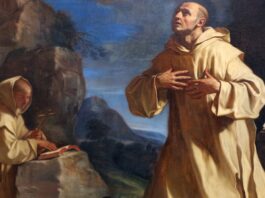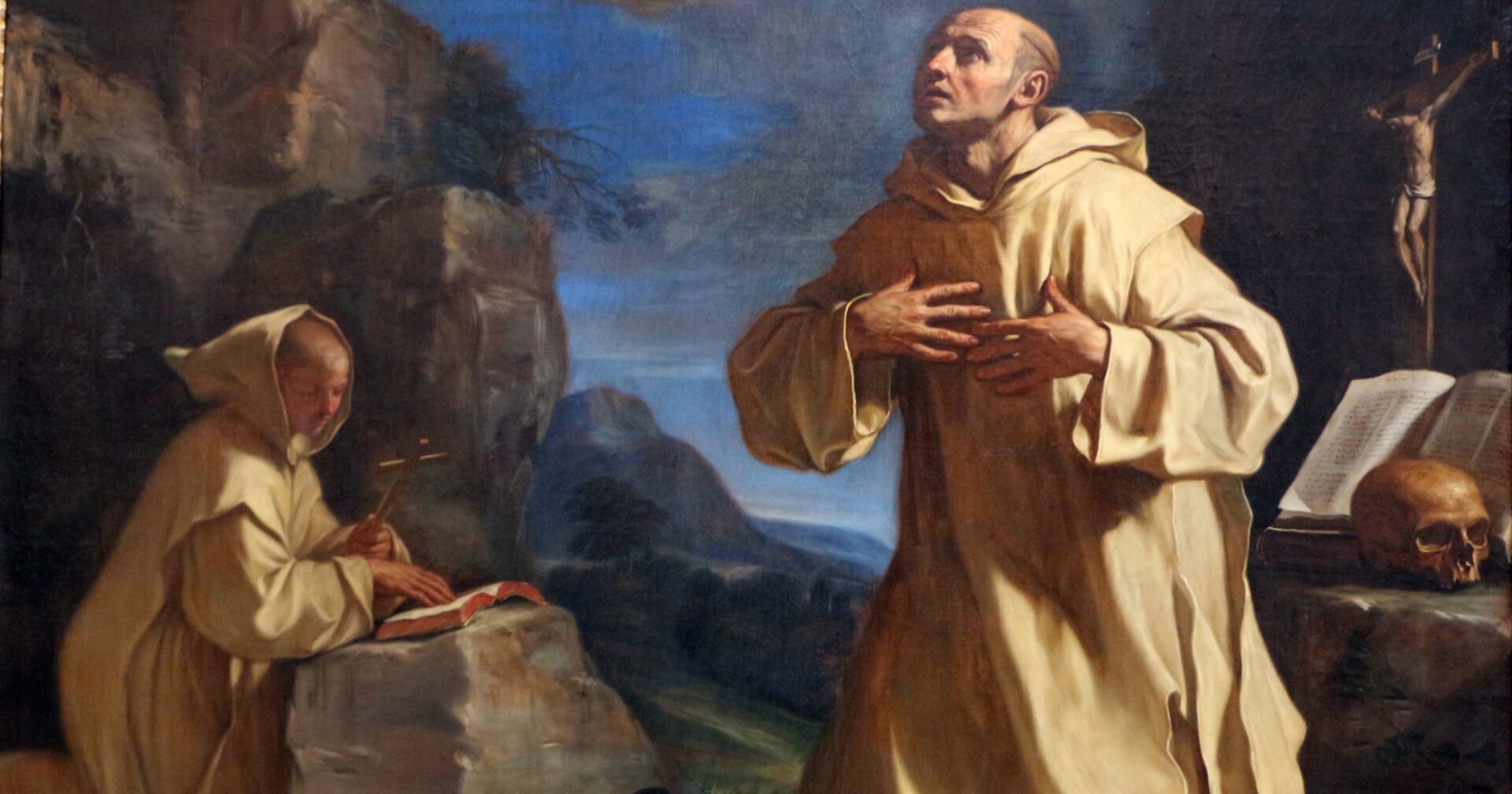
Born in Solero, Piedmont around 1048, Saint Bruno of Segni emerged as a remarkable figure in Italy, both for his intellectual prowess and for his eminent spirituality. Serving in multiple prestigious roles such as Benedictine bishop, Vatican librarian, and cardinal legate, Bruno’s legacy spans over a lifetime dedicated to the Church, before he passed away in 1123.
Bruno’s education began in his hometown’s Benedictine monastery and furthered in Bologna, post which he was ordained and became a canon of Sienna. His profound learning and exceptional piety didn’t go unnoticed; he was summoned to Rome where his prudent counsel was greatly sought after by four consecutive popes.
During a Roman synod in 1079, Bruno’s theological acumen was evident as he compelled Berengarius of Tours, a denier of the real presence of Our Lord in the Holy Eucharist, to retract his heresy. He also held a close friendship with Gregory VII, who consecrated him as the Bishop of Segni in 1080. Despite being offered the cardinalate, Bruno’s humility led him to decline. Known as “the brilliant defender of the church,” Bruno showcased an invincible courage in championing ecclesiastical reform and staunchly denouncing lay investiture, even labelling it heretical.
In 1095, Bruno accompanied Pope Urban II to the Council of Clermont, which marked the initiation of the First Crusade. Seven years later, he embraced monastic life at Monte Casino, where he was elected abbot in 1107 without giving up his episcopal duties. He stood with many bishops from Italy and France in opposition to the “Privilegium,” a treaty that Henry V of Germany had coerced from Pope Paschal II. Bruno openly criticized the pope for this agreement that partly conceded the unacceptable claim of investiture of ring and crosier upon bishops and abbots to the German king. In response to his vocal opposition, Paschal II ordered Bruno to relinquish his abbey and resume his episcopal duties.
Nonetheless, Bruno remained unyielding in his dedication to his flock’s welfare and the larger interests of the Church until his death. Pope Lucius III canonized him in 1183, and his feast is celebrated on July 18th. Bruno left behind a rich literary legacy, primarily comprising scriptural works, which include commentaries on the Pentateuch, the Book of Job, the Psalms, the four Gospels, and the Apocalypse.
Photo credit: Sailko via Wikimedia Commons
The post Saint Bruno of Segni appeared first on uCatholic.
Daily Reading
Tuesday of the Thirty-fourth Week in Ordinary Time
Reading 1 RV 14:14-19 I, John, looked and there was a white cloud, and sitting on the cloud one who looked like a son of man, with a gold crown…
Daily Meditation
Do Not Be Led Astray, Do Not Fear
Click here for daily readings In this somewhat confusing Gospel passage Jesus says two things in particular that stand out to me. “Take heed that you are not led astray”…




